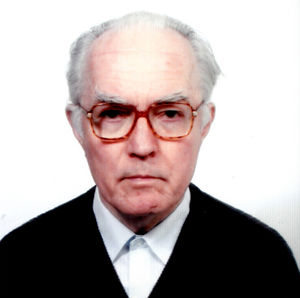Imre Csiszar
- Associated organizations
- A. Rényi Institute of Mathematics
- Fields of study
- Information theory
- Awards
- Shannon Award
Biography
With research spanning over five decades, Imre Csiszár has provided fundamental and pace-setting contributions to information theory and statistics that have been crucial to data compression, multiuser communications systems, and secure data transmission impacting fields including genetics, economics, signal processing, and pattern recognition. Prof. Csiszár is known for developing the “method of types.” This approach to proving coding theorems for discrete memoryless communication systems has become a powerful tool for understanding communications and statistics. His book Information Theory: Coding Theorems for Discrete Memoryless Systems (Academic Press, 1981; Second Edition, Cambridge University Press, 2011) with J. Körner is considered the most comprehensive treatment on the method of types and is an indispensable resource for information theory researchers. Prof. Csiszár’s contributions to information-theoretic security began in 1978 and still continue. His work, also with Körner, on generalizing the wiretap channel model has provided the foundations for implementing enhanced physical-layer security in wireless communications networks. His recent work with P. Narayan on secret key extraction by network terminals using public communication has motivated advances in key generation algorithms based on low-density parity check codes and polar code constructions as well as network coding schemes. Prof. Csiszár has also demonstrated the fundamental role data compression algorithms can play in the construction of a new generation of secret keys for secure encrypted communication. His analysis of divergence geometries of probability distributions has led to using alternating minimization algorithms to help tackle optimization problems in applications including channel transmission in information theory, function reconstruction from moments in the kinetic theory of gases, biomedical imaging, and pattern recognition algorithms in computer vision.
An IEEE Life Fellow and recipient of the Shannon Award (1996), Dr. Csiszár is a Research Professor Emeritus with the A. Rényi Institute of Mathematics, Hungarian Academy of Sciences, Budapest, Hungary.
